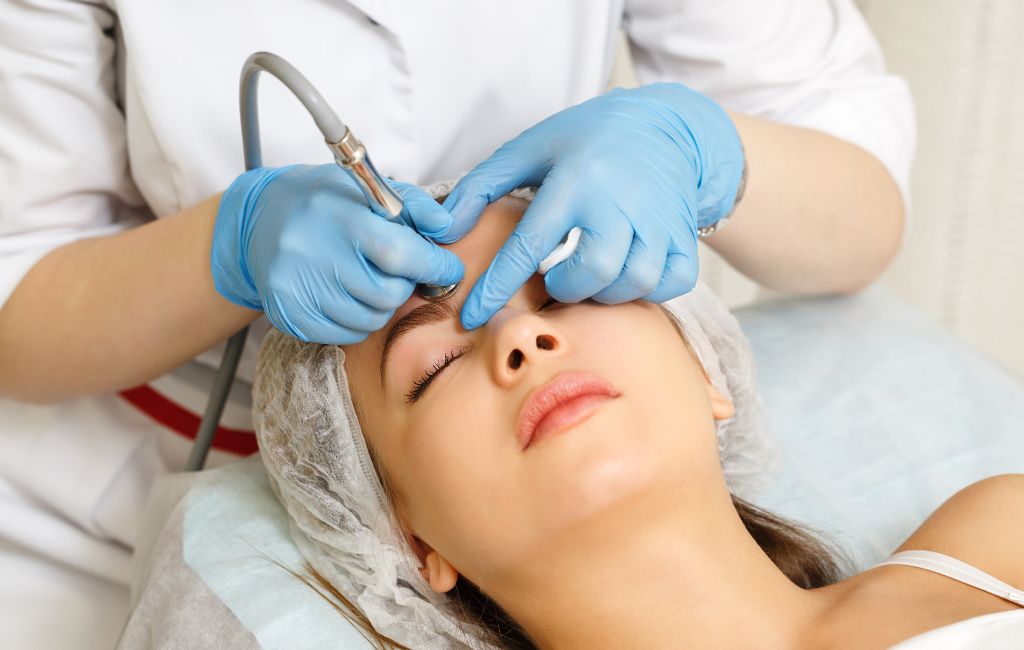The Power of Skin Peptides
In the ever-evolving field of skincare, peptides have emerged as a significant player. These small chains of amino acids are the building blocks of proteins, such as collagen and elastin, which are vital for maintaining skin’s firmness and elasticity. As the skincare industry continues to grow, understanding the role of skin peptides can help consumers make informed decisions about their skincare routines.
What Are Skin Peptides?
Peptides are short chains of amino acids that serve as the foundation for proteins. In the context of skincare, they are known for their ability to penetrate the skin and signal the body to produce more collagen. This process can lead to firmer, more youthful-looking skin.
Types of Peptides
- Signal Peptides: These peptides send messages to skin cells to boost collagen production.
- Carrier Peptides: They deliver trace elements like copper and magnesium to the skin, aiding in wound healing and enzyme activation.
- Enzyme Inhibitor Peptides: These peptides slow down the natural breakdown of collagen, helping to maintain skin’s firmness.
- Neurotransmitter Inhibitor Peptides: Often compared to Botox, these peptides can reduce the appearance of wrinkles by inhibiting muscle contraction.
Benefits of Using Peptides in Skincare
Peptides offer a range of benefits that make them a popular choice in skincare formulations. Their ability to communicate with skin cells and promote collagen production is just the beginning.
Improved Skin Barrier
The skin barrier is the outermost layer of the skin, responsible for keeping moisture in and harmful elements out. Peptides can help strengthen this barrier, leading to better hydration and protection against environmental damage.
Reduction in Fine Lines and Wrinkles
By stimulating collagen production, peptides can reduce the appearance of fine lines and wrinkles. This makes them a popular ingredient in anti-aging products.
Enhanced Elasticity and Firmness
With increased collagen and elastin production, peptides can improve skin’s elasticity and firmness, giving it a more youthful appearance.
Anti-Inflammatory Properties
Some peptides have anti-inflammatory properties, which can help soothe irritated skin and reduce redness. This makes them beneficial for individuals with sensitive or acne-prone skin.
Case Studies and Research
Several studies have highlighted the effectiveness of peptides in skincare. A study published in the “Journal of Cosmetic Dermatology” found that a peptide complex significantly improved skin elasticity and reduced wrinkles after 12 weeks of use. Another study in the “International Journal of Cosmetic Science” demonstrated that copper peptides improved wound healing and skin regeneration.
Incorporating Peptides into Your Skincare Routine
Integrating peptides into a skincare routine can be straightforward. They are available in various forms, including serums, creams, and masks. When selecting a peptide product, consider the following tips:
- Look for products with a high concentration of peptides for maximum effectiveness.
- Combine peptide products with other active ingredients like hyaluronic acid and antioxidants for enhanced results.
- Apply peptide products after cleansing and toning but before moisturizing to allow for better absorption.
Potential Side Effects and Considerations
While peptides are generally considered safe for most skin types, some individuals may experience mild irritation or allergic reactions. Conducting a patch test before using a new peptide product can help prevent adverse reactions. Consulting with a dermatologist can provide personalized advice based on individual skin needs.
Conclusion
Peptides have proven to be a powerful tool in the skincare arsenal, offering benefits such as improved skin barrier function, reduced wrinkles, and enhanced elasticity. With ongoing research and development, the potential of peptides in skincare continues to expand. By understanding their role and benefits, consumers can make informed choices to achieve healthier, more youthful-looking skin.


